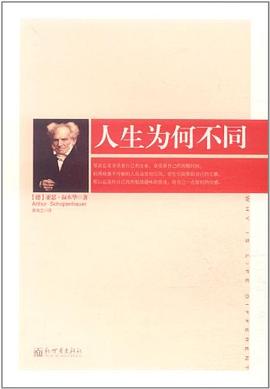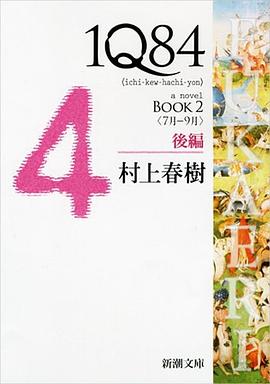The Complete Poems of Philip Larkin
内容简介
This entirely new edition brings together all of Philip Larkin's poems. In addition to those in Collected Poems (1988), and in the Early Poems and Juvenilia (2005), some unpublished pieces from Larkin's typescripts and workbooks are included, as well as verse (by turns scurrilous, satirical, affectionate, and sentimental) tucked away in his letters. The manuscript and printed sources have been scrutinized afresh; more detailed accounts than hitherto available of the sources of the text and of dates of composition are provided; and previous accounts of composition dates have been corrected. Variant wordings from Larkin's typescripts and the early printings are recorded.
For the first time, the poems are given a comprehensive commentary. This draws critically upon, and substantially extends, the accumulated scholarship on Larkin, and covers closely relevant historical contexts, persons and places, allusions and echoes, and linguistic usage. Due prominence is given to the poet's comments on his poems, which often outline the circumstances that gave rise to a poem, or state what he was trying to achieve. Larkin played down his literariness, but his poetry enrichingly alludes to and echoes the writings of many others; Archie Burnett's commentary establishes him as a more complex and more literary poet than many readers have suspected.
Review
"More often than any other English poet since the war, Larkin gave us lines that it is unlikely we'll be able to forget."" --"Ian Hamilton, "The Times "(London)
"Larkin is resolute, forthright, witty, and gloomy. This is the man who famously said that deprivation was for him what daffodils were for Wordsworth. Yet surely the results of this life, in the shape of his poems, are gifts, not deprivations."" --"Donald Hall, "The New Criterion"
Praise for "The Complete Poems"
"["The Complete Poems"] is a must-have for anyone who enjoys Larkin . . . Burnett's notes offer a fascinating, compendious "vade mecum "into Larkin's poetic world. Full of reassuring exactitude about variants, and extensive reference to the poet's own comments on the work, they are most stimulating of all when they cite buried sources . . . A lot of thought as well as an enormous amount of research has clearly gone into this [volume]."
--Fiona Sampson, "The Independent"
"[Archie] Burnett presents a very different picture of Larkin from the one by which he came to be known; one that is far more literary, and occasionally far more amusing. A reader can now trace Larkin's development from his allusive [early efforts] . . . to his more mature, better-known works." --"The Economist"
"Apart from representing an unprecedented Larkin poetic storehouse, the other glory of "The Complete Poems "is Burnett's dazzlingly detailed commentary . . . One of the chief pleasures . . . is tracing the emergence of one of English poetry's most distinctive poetic voices . . . A landmark volume, a wonder-book of verse by one of the art form's best practitioners of the last hundred years." --Terry Kelly, "The London Magazine"
Praise for Philip Larkin:
"More often than any other English poet since the war, Larkin gave us lines that it is unlikely we'll be able to forget."" --"Ian Hamilton, "The Times "(London)
"Larkin is resolute, forthright, witty, and gloomy. This is the man who famously said that deprivation was for him what daffodils were for Wordsworth. Yet surely the results of this life, in the shape of his poems, are gifts, not deprivations."" --"Donald Hall, "The New Criterion"
Book Des cription
The Complete Poems of Philip Larkin in an entirely new edition that brings together all of Larkin's poems in addition to some unpublished pieces.
......(更多)
作者简介
Philip Arthur Larkin CH CBE FRSL (9 August 1922 – 2 December 1985) was an English poet, novelist and librarian. His first book of poetry, The North Ship, was published in 1945, followed by two novels, Jill (1946) and A Girl in Winter (1947), and he came to prominence in 1955 with the publication of his second collection of poems, The Less Deceived, followed by The Whitsun Weddings (1964) and High Windows (1974). He contributed to The Daily Telegraph as its jazz critic from 1961 to 1971, articles gathered in All What Jazz: A Record Diary 1961–71 (1985), and he edited The Oxford Book of Twentieth Century English Verse (1973).[1] His many honours include the Queen's Gold Medal for Poetry.[2] He was offered, but declined, the position of Poet Laureate in 1984, following the death of Sir John Betjeman.
After graduating from Oxford in 1943 with a first in English language and literature, Larkin became a librarian. It was during the thirty years he worked with distinction as university librarian at the Brynmor Jones Library at the University of Hull that he produced the greater part of his published work. His poems are marked by what Andrew Motion calls "a very English, glum accuracy about emotions, places, and relationships", and what Donald Davie described as "lowered sights and diminished expectations". Eric Homberger (echoing Randall Jarrell) called him "the saddest heart in the post-war supermarket"—Larkin himself said that deprivation for him was what daffodils were for Wordsworth.[3] Influenced by W. H. Auden, W. B. Yeats, and Thomas Hardy, his poems are highly structured but flexible verse forms. They were described by Jean Hartley, the ex-wife of Larkin's publisher George Hartley (the Marvell Press), as a "piquant mixture of lyricism and discontent",[4] though anthologist Keith Tuma writes that there is more to Larkin's work than its reputation for dour pessimism suggests.[5]
Larkin's public persona was that of the no-nonsense, solitary Englishman who disliked fame and had no patience for the trappings of the public literary life.[6] The posthumous publication by Anthony Thwaite in 1992 of his letters triggered controversy about his personal life and political views, described by John Banville as hair-raising, but also in places hilarious.[6] Lisa Jardine called him a "casual, habitual racist, and an easy misogynist", but the academic John Osborne argued in 2008 that "the worst that anyone has discovered about Larkin are some crass letters and a taste for porn softer than what passes for mainstream entertainment".[7] Despite the controversy Larkin was chosen in a 2003 Poetry Book Society survey, almost two decades after his death, as Britain's best-loved poet of the previous 50 years, and in 2008 The Times named him Britain's greatest post-war writer.[8]
In 1973 a Coventry Evening Telegraph reviewer referred to Larkin as "the bard of Coventry",[9] but in 2010, 25 years after his death, it was Larkin's adopted home city, Kingston upon Hull, that commemorated him with the Larkin 25 Festival[10] which culminated in the unveiling of a statue of Larkin by Martin Jennings on 2 December 2010, the 25th anniversary of his death.[11][12][13] On 2 December 2016, the 31st anniversary of his death, a floor stone memorial for Larkin was unveiled at Poets' Corner in Westminster Abbey.[14]
......(更多)
目录
......(更多)
读书文摘
......(更多)






